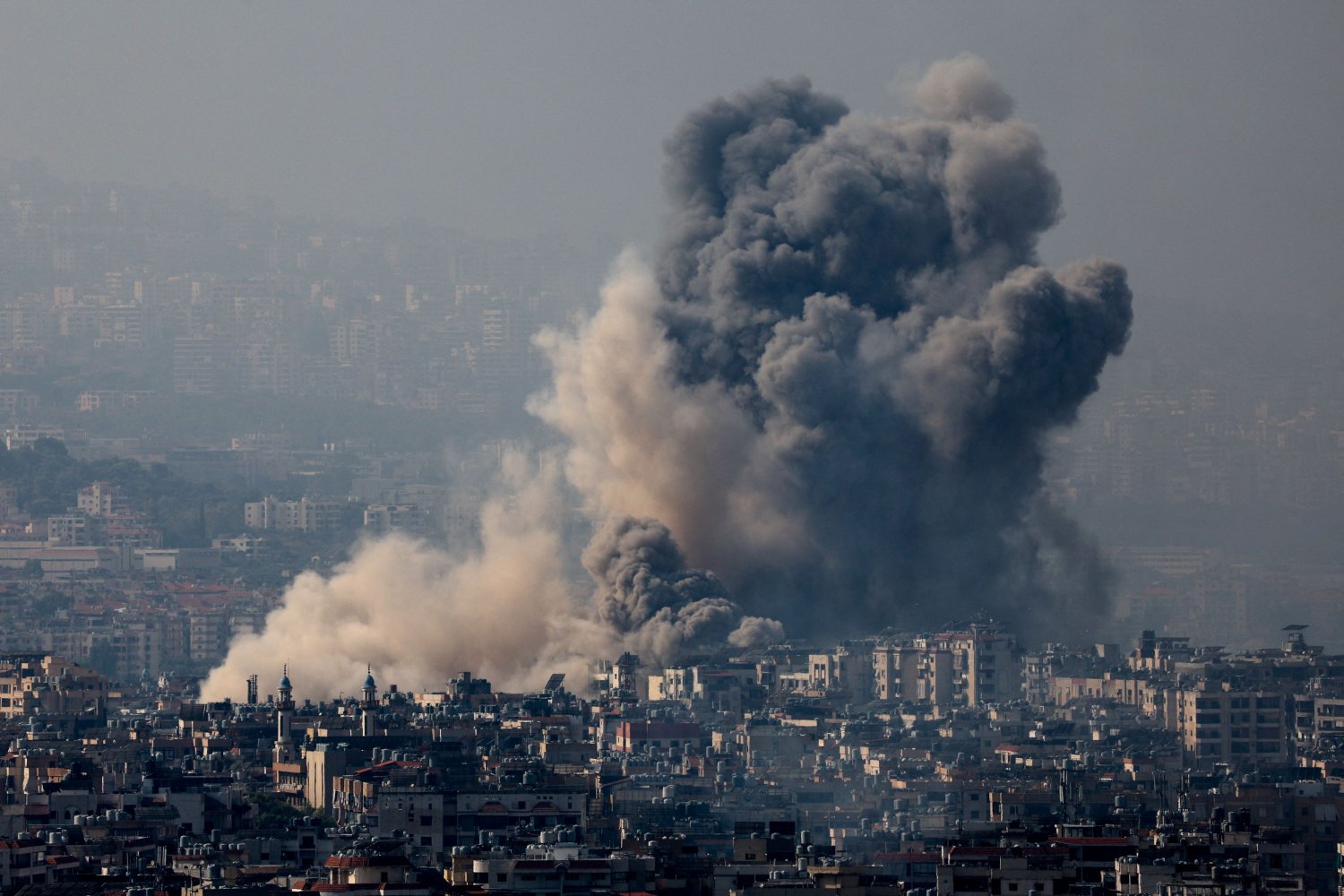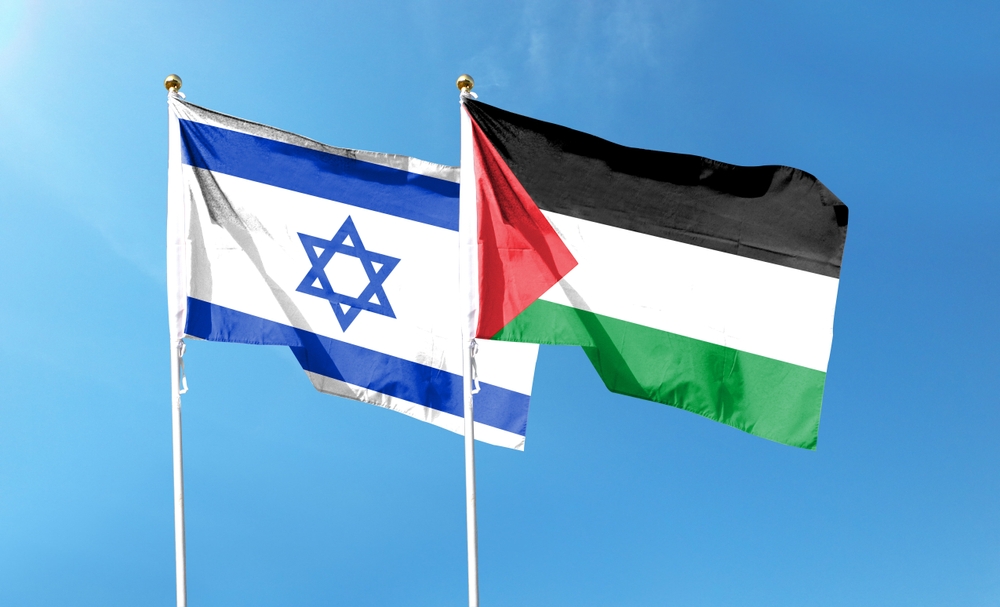The Israeli army is on high alert today, Sunday 6/10, due to the risk of new attacks, on the eve of the anniversary of the unprecedented attack by Hamas’s military arm in southern Israel, while at the same time preparing the retaliation that the government intends to carry out. of Prime Minister Benjamin Netanyahu against Iran, after the Islamic Republic fired about 200 rockets into Israeli territory earlier this week following the deaths of Hezbollah and Hamas leaders.
Mosque bombing in Gaza – At least 21 dead
At the same time, the action of the Israeli army in the Gaza Strip continues, with civil protection speaking in the early hours of the morning about at least 21 dead and dozens of others injured in an aerial bombardment against an Islamic mosque that had been converted into a reception center for internally displaced persons.
The head of the national defense general staff, General Herchi Halevi, also expressed his determination to continue “uninterrupted” strikes on Hezbollah, against which large-scale operations have been conducted since the end of last month.
“This week, we call to remember the anniversary of the war and the (attack of) October 7 (2023). We are ready to increase our forces ahead of this day” at home because of concerns that new attacks will be launched, Israeli military spokesman Daniel Hagari said yesterday without elaborating.
In a message ahead of the anniversary, Israeli President Isaac Herzog denounced the “permanent threat” of Iran and its “terrorist proxies” who are “determined to destroy our one and only nation state”.
Netanyahu’s speech on Monday
Israeli Prime Minister Netanyahu is expected to deliver an address to the nation on Monday on the anniversary of the attack, which triggered the war in the Gaza Strip.
The unprecedented raid by Hamas killed 1,205 people on the Israeli side, most of them civilians, according to an AFP tally based on official Israeli data. Of the 251 people abducted that day, 97 remain in captivity in the Palestinian enclave, of whom 64 are believed to be alive and 33 have been declared dead by the Israeli military.
Retaliation is imminent in Iran – What an IDF officer revealed
After Iran fired a barrage of missiles at Israel on Tuesday, the military was “preparing retaliation,” an officer told AFP on condition of anonymity.
“Iran has already twice launched hundreds of missiles against our territory (…). Israel has a duty and a right to defend itself and to retaliate against these attacks, and that is what we will do,” Mr. Netanyahu bid.
“An even stronger response,” warns Tehran
From Damascus, the head of Iranian diplomacy, Abbas Araghchi, warned that “for every action there will be a reaction, proportional and similar from Iran” if not “even stronger”.
According to Iran, the roughly 200 rockets fired at Israel on Tuesday were in “legitimate” retaliation for the killings of Hassan Nasrallah, Hezbollah’s secretary general, in an airstrike on September 27 in a southern suburb of Beirut, and Ismail Haniya. , of the Hamas leader, in an explosion in Tehran on July 31 attributed to Israel.
Iran had already launched a direct attack on Israel — its first ever — on April 13, launching hundreds of drones, cruise missiles and ballistic missiles in retaliation for the deadly bombing that leveled its consulate in Damascus, also attributed to Israel.
“No” Biden to strike Iran’s oil facilities – “Yes” from Trump
US President Joe Biden urged Israel not to hit Iranian oil facilities. His predecessor and Republican candidate to succeed him, Donald Trump, ruled for his part that Israel should strike Iranian nuclear facilities.
After allegedly weakening Hamas in its — ongoing — operations in the besieged Gaza Strip, Israel in mid-September shifted the center of gravity of the war to the northern front, on the border with Lebanon, where Hezbollah has opened a front in support of the Palestinian Islamist movement on October 8, 2023.
Netanyahu’s government says it will end Hezbollah’s rocket and missile fire to allow the safe return of tens of thousands of internally displaced residents of northern Israel.
The Israeli military stepped up heavy and deadly airstrikes on Hezbollah strongholds since September 23, in southern Lebanon, the Bekaa Valley and elsewhere, before launching ground operations on September 30.
Bombing barrage – We are hitting terrorist targets, IDF says
Last night, the Lebanese national news agency ANI reported five new shellings in and around the southern suburbs, among them three “very severe”, shortly after the Israeli army issued new orders to civilians to leave this stronghold immediately. Hezbollah.
The Israeli military confirmed it was “hitting terrorist targets,” Hezbollah installations, in this area of Beirut, via Telegram.
AFP correspondents heard loud explosions in the southern sectors of the city and its outskirts for over two hours.
One of them, near Sabra, near the southern district, saw dozens of people fleeing, holding their few belongings, amid explosions.
For its part, Hezbollah assured that “a group of soldiers of the Israeli enemy tried to penetrate (…) into Blinda” but its fighters targeted them “with artillery fire” and “forced them to retreat”.
Is Nasrallah’s successor, Hashim Safyeddin, dead after all?
The Israeli military says that since September 30 it has “eliminated approximately 440 terrorists,” including “30 commanders” of Hezbollah in Lebanon,
The day before Friday, it pounded Beirut’s southern districts, targeting, according to the Ynet news website — the online version of the Gedot Aharonot newspaper — the bombings aimed at the headquarters of Hezbollah’s intelligence service, where Hashem Safieddin, a potential successor, is believed to be. of the deceased party secretary general Nasrallah.
A Hezbollah spokesman said on condition of anonymity that contact with Hashem Safieddin had been “lost” since Friday.
photo: Youtube
According to Lebanon’s disaster management agency, more than 2,000 people have been killed in the country since October 2023, more than 1,000 since September 23. The Lebanese government estimates that at least 1.2 million civilians have been displaced.
“We have been on the road for 13 days,” said Salma Salman, 30, who fled her home in a southern suburb of Beirut and fled to the heart of the capital. “We are living an endless nightmare,” he added.
In the Gaza Strip, most of which has been reduced to rubble and whose population faces the specter of starvation after a year of war, at least 12 people, including children, were killed on Saturday, according to emergency services. Since the start of the war, at least 41,825 people, most of them civilians, have died, according to Hamas’ health ministry.
Netanyahu’s anger and Elize’s response
French President Emmanuel Macron yesterday called for an end to arms deliveries used by Israel in the Gaza Strip, angering Israeli Prime Minister Netanyahu, who countered it was a “shame”.
The exchange quickly turned into a diplomatic crisis. To the extent that the Élysée issued a press release last night assuring that France remains a “friend of Israel” and condemned Mr. Netanyahu’s “excessive” expressions.
“Shame on them,” the Israeli prime minister said, referring to the French president and other Western leaders who he says want an arms embargo on his military.
In contrast, Qatar, a key mediator in ceasefire talks in the Gaza Strip, called President Macron’s statement an “important step” in the effort to end the war, while Jordan also praised the French leader’s call.
For his part, the British Foreign Secretary David Lammy described yesterday Saturday as “deeply disturbing” the information about Israeli bombings that hit “health facilities and hospital staff” in Lebanon.
#Israel #escalates #Bombs #mosque #Gaza #prepares #retaliation #Iran


